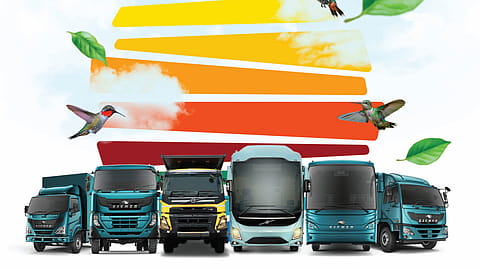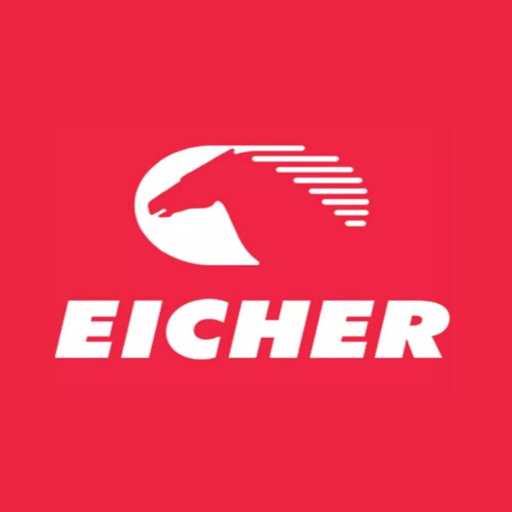Eicher Motors and Volvo Group’s joint venture VECV aims for 70% renewable energy use in plants by FY27
The move comes as part of the company’s broader environmental goals aligned with India’s commitment to net zero emissions.

VE Commercial Vehicles (VECV), the joint venture between Eicher Motors and Volvo Group, has announced plans to transition 70% of its plant operations to renewable energy by the financial year 2026–27. The move comes as part of the company’s broader environmental goals aligned with India’s commitment to net zero emissions.
The company announced its plans to achieve water positivity by 2030, as per a statement released on Thursday. At its Bhopal facility, operational since 2020, VECV claims to have created a 52-million-litre water reservoir intended to meet the plant's needs for up to four months without external supply. This is part of its effort to improve resource management and reduce dependence on external utilities.
VECV’s production units have shifted entirely to LED lighting, replacing around 5,000 fixtures, which, the company claims, has helped reduce energy intensity from 3.85 GJ per million INR of revenue in FY23 to 3.74 GJ in FY24.
Like other major commercial vehicle manufacturers, such as Tata Motors and Ashok Leyland, VECV has expanded its electric portfolio to align with the country’s transition to cleaner transport. The firm’s commercial fleet includes electric trucks and buses, as well as vehicles powered by CNG and LNG. Electric buses from its Eicher brand have been operating in several Indian states since 2022. The company, however, has not disclosed the number of electric buses currently deployed across India. Its most recent launch was the Eicher Pro X, a small electric truck targeting last-mile delivery applications.
At the policy level, to support electric mobility, the government had launched the National Electric Bus Programme (NEBP) in 2022 with the goal of deploying 50,000 electric buses over five years, backed by an investment of ₹82,000 crore, according to the Institute for Energy Economics and Financial Analysis.
As of November 22, 2024, the total number of electric buses on Indian roads stood at 10,677, including both pure electric and strong hybrid variants, according to a written reply by Road Transport and Highways Minister Nitin Gadkari in the Rajya Sabha.
VECV’s Bhopal plant includes digital energy monitoring systems and an all-woman final assembly line for the Pro X.
Recommended Stories
The company said that its long-term sustainability roadmap includes waste reduction, zero landfill targets, and projects aligned with UN Sustainable Development Goals related to clean water, clean energy, responsible consumption, and climate action.
